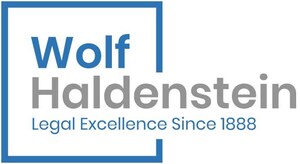
Lead Plaintiff Deadline is January 2, 2026
NEW YORK, Nov. 11, 2025 /PRNewswire/ -- Wolf Haldenstein Adler Freeman & Herz LLP reminds investors that a federal securities class action lawsuit has been filed against CarMax, Inc. ("CarMax" or the "Company") (NYSE: KMX) and certain of its officers for alleged violations of federal securities laws.
PLEASE CLICK HERE TO JOIN THE CASE AND SUBMIT CONTACT INFORMATION
Class Period: June 20, 2025 – September 24, 2025 (inclusive)
Key Events:
- CarMax and certain executives allegedlyviolated the Securities Exchange Act of 1934.
- The company is accused of misleading investors by overstating its growth prospects.
- Growth in early FY2026 was allegedlytemporary, driven by short-term customer purchases linked to tariff speculation.
- On September 25, 2025, CarMax revealed disappointing Q2 FY2026 results:
- Retail unit sales ↓ 5.4%
- Comparable store unit sales ↓ 6.3%
- Net earnings per diluted share: $0.64, down from $0.85 a year earlier
- Following this announcement, CarMax's stock price fell about 20%.
What Are The Next Steps:
Investors who purchased or otherwise acquired CarMax securities during the Class Period may move the Court no later than January 2, 2026, to be appointed lead plaintiff.
Why Wolf Haldenstein Adler Freeman & Herz LLP? :
This illustrious firm, founded in 1888, is steadfast in their pursuit of justice for investors who have suffered financial harm due to these misrepresented statements. The law firm brings to the fore over 125 years of legal expertise in securities litigation and has a proven track record of protecting the rights of investors.
We encourage all investors who have been affected or have information that will assist in our investigation, to contact Wolf Haldenstein Adler Freeman & Herz LLP.
Contact:
- Phone: (800) 575-0735 or (212) 545-4774
- Email: [email protected]
- Contact Person: Gregory Stone, Director of Case and Financial Analysis
Firm Website: Wolf Haldenstein Adler Freeman & Herz LLP
This press release may be considered Attorney Advertising in some jurisdictions under the applicable law and ethical rules.
SOURCE Wolf Haldenstein Adler Freeman & Herz LLP



Share this article